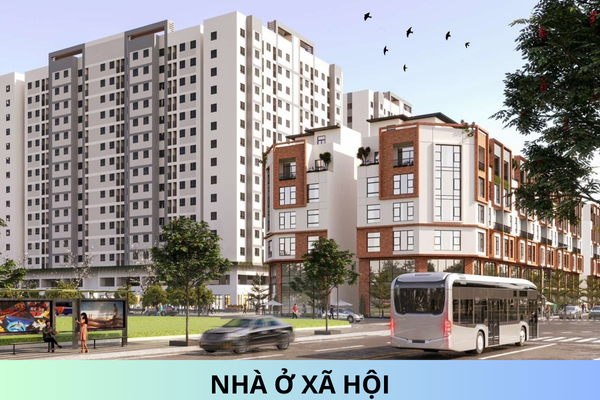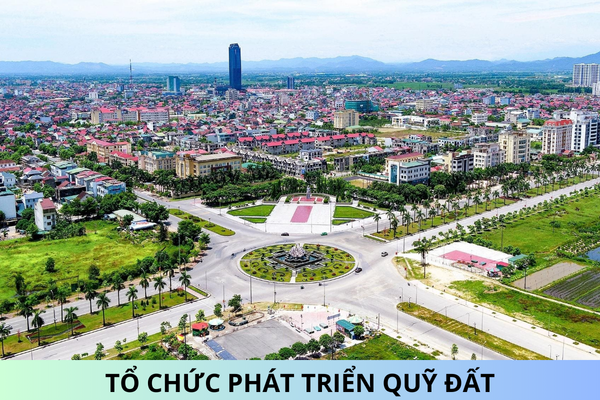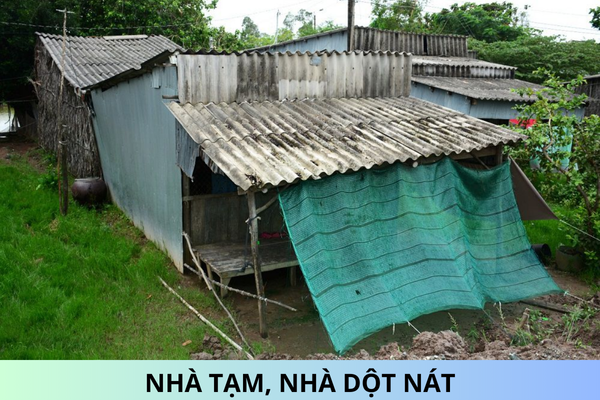Do rental agreements have to be notarized in Vietnam? Are tenants allowed to freely renovate or expand their rented housing in Vietnam?
Do rental agreements have to be notarized in Vietnam? Are tenants allowed to freely renovate or expand their rented housing in Vietnam? Dossiers for renting official residence for doctors working in remote areas in Vietnam.
Do rental agreements have to be notarized in Vietnam?
I heard that the rental agreement does not have to be notarized. And I also heard from another source that the lease must be notarized. I don't know which information is correct. Should I ask you to consult the law to help me in which case must be notarized? Which case is not notarized? Or is the rental agreement required to be notarized? Or does the rental agreement not have to be notarized? Thank!
Reply:
According to the provisions of law, the parties to the housing rental transaction must agree to make a house lease contract.
According to the provisions, a housing contract shall be agreed upon by the parties and must be made in writing, including the following contents: Full names of individuals, names of organizations and addresses of contracting parties; Description of characteristics of the house and the piece of land attached to that house. Regarding agreements on apartment sale or lease purchase, contracting parties must state the common areas or common-using areas; private areas; floor area; purposes of the common areas or common-using areas in the apartment building according to approved design; The value of contributed capital, the transaction price of housing if there is a term on pricing in the agreement; regarding transactions in housing sale, lease, or lease purchase which is regulated pricing by the State, contracting parties shall comply with that regulations; Deadline for and method of payment regarding transactions in housing sale, lease, lease purchase or transfer of agreements on housing sale; Deadline for housing transfer; housing warranty duration regarding transactions in buying or renting and buying new house; terms of agreements on housing lease, lease purchase, mortgage, lending, permission for stay, authorization of housing management; deadline for capital contribution; Rights and obligations of contracting parties; Commitments of contracting parties; Other agreements; Effective date of the agreement; Date, month and year of contract signing; Signatures and full names of contracting parties, or stamps (if any) and positions of the signatories regarding organizations.
According to the provisions of law in Article 122 of the Law on Housing 2014, the notarization and authentication of housing contracts are carried out as follows:
1. Regarding agreements on housing sale, giving, exchange, capital contribution, mortgage, or transfer of agreement on commercial housing sale, it is required to notarize or authenticate the agreement, except for cases prescribed in Clause 2 of this Article.
Regarding any agreement prescribed in this Clause, the effective date of the agreement shall be the date on which the agreement is notarized or authenticated.
2. Regarding transactions in giving houses of gratitude; sale or lease purchase of state-owned housing; sale or lease purchase of social housing, housing serving the relocation; contributed housing which one entity of contracting parties is an organization; housing lease, lending, permission for stay, or authorization of housing management, it is not required to notarize or authenticate the agreement, unless contracting parties wish to notarize or authenticate the agreement.
Regarding any agreement prescribed in this Clause, the effective date of the agreement shall be agreed by contracting parties; if the contracting parties do not agree, the effective date of agreement shall be the date on which the agreement is signed.
3. The documents on housing inheritance must be notarized or authenticated as prescribed in law on civil.
4. The notarization of housing agreement must be carried out at a notary; the authentication of housing agreement must be carried out at the People’s Committee of the commune where the house is located.
Above is our consulting opinion on the issue you are wondering.

Are tenants allowed to freely renovate or expand their rented housing in Vietnam?
I have rented a house of a friend of mine with a lease term of 6 years, both parties have signed a rental contract and notarized it at the Notary Office. My friend is currently abroad and I cannot contact him. And I'm looking to renovate the house a bit and add another Entresol. So if I can't contact my friend and my friend does not agree to do so, can I do it on my own?
Reply:
According to the provisions of the law in Vietnam, the house owner can conduct transactions on the house under his/her lawful ownership in form of purchase, sale, lease, lease-purchase of the house, transfer of the purchase contract. commercial housing sale, donation, exchange, inheritance, mortgage, capital contribution, loan, stay and authorization for housing management.
Therefore, in case the house's lawful owner is an individual with full civil act capacity, he/she may conduct a house-lease transaction in accordance with law.
And the house tenant must also have full civil act capacity (not required to have permanent residence registration in the place where the house is being transacted) to carry out the house-rental transaction in accordance with the law.
If you are a foreign individual or a Vietnamese residing abroad, you must have full civil act capacity and must be eligible to own a house in Vietnam according to the provisions of the Law on Housing 2014 (not required to have a residence permit). have temporary residence registration or permanent residence registration at the place where the house is traded)
The order and procedures for performing house-lease transactions shall comply with the provisions of Article 121 of the Law on Housing 2014.
A housing agreement shall be concluded by contracting parties and made in writing, including:
1. Full names of individuals, names of organizations and addresses of contracting parties;
2. Description of characteristics of the house and the piece of land attached to that house. Regarding agreements on apartment sale or lease purchase, contracting parties must state the common areas or common-using areas; private areas; floor area; purposes of the common areas or common-using areas in the apartment building according to approved design;
3. The value of contributed capital, the transaction price of housing if there is a term on pricing in the agreement; regarding transactions in housing sale, lease, or lease purchase which is regulated pricing by the State, contracting parties shall comply with that regulations;
4. Deadline for and method of payment regarding transactions in housing sale, lease, lease purchase or transfer of agreements on housing sale;
5. Deadline for housing transfer; housing warranty duration regarding transactions in buying or renting and buying new house; terms of agreements on housing lease, lease purchase, mortgage, lending, permission for stay, authorization of housing management; deadline for capital contribution;
6. Rights and obligations of contracting parties;
7. Commitments of contracting parties;
8. Other agreements;
9. Effective date of the agreement;
10. Date of agreement;
11. Signatures and full names of contracting parties, or stamps (if any) and positions of the signatories regarding organizations.
House rental contracts are not required to be notarized or authenticated in Vietnam. In case the parties to the rental contract have agreed to notarize and authenticate the contract, the agreement shall be complied with.
The parties to the rental contract exercise their rights and obligations under the rental contract from the time the rental contract takes effect (the effective time of the contract is agreed upon by the parties).
Therefore, whether or not the lessee can freely renovate or expand the rented house without the consent of the lessor or not is based on whether the lease agreement has an agreement on this issue or not:
- Where there is an agreement in the lease contract that the lessee is allowed to freely renovate or expand the rented house without the consent of the lessor, the lessee may do so. Or an agreement between the lessee not to arbitrarily renovate or expand the rented house without the consent of the lessor, the lessee may not perform.
- If there is no agreement in the contract, according to the provisions of Clause 10, Article 6 of the Law on Housing 2014, the lessee may not renovate or expand the rented house without the co-ownership. Therefore, the tenant can not do it.
In this case, the tenant must contact the lessor to obtain permission. The lessee shall do the work with the consent of the lessor.
Above is our consulting opinion on the issue you are wondering.
Dossiers for renting official residence for doctors working in remote areas in Vietnam
I am a doctor who has just graduated from college and has been sent to work in remote areas. May I ask if I am allowed to rent official residence? What documents are required for official residence rental? Hope you guys can help me, thank you very much.
Reply:
According to the provisions of Clause 1, Article 32 of the Law on Housing 2014, tenants of official residences include:
1. The entities entitled to rent official residences include:
a) Senior officials of the Communist Party and/or the State entitled to rent the official residences over the duration in which they are on duty;
b) Officials and civil servants of bodies of the Communist Party, the State, socio-political organizations who are not entitled to rent official residences as prescribed in Point a of this Clause but they are subject to job rotation in the central agencies and holding at least Deputy Minister positions or equivalent; or subject to job rotation in the local agencies and holding at least President of the People’s Committee of district or Director of Service positions or equivalent;
c) Officials and civil servants of bodies of the Communist Party, the State, socio-political organizations who are not entitled to rent official residences as prescribed in Point b of this Clause but they are subject to job rotation in communes of remote areas or severely disadvantaged areas, border or island areas;
d) Officers or professional soldiers in People’s armed forces subject to job rotation as required by national defense and security, except for entities living in the barracks of the armed forces as prescribed in regulations of law;
dd) Teachers who are teaching in the rural areas, remote areas, severely disadvantaged areas, border or island areas;
e) Doctors, health workers who are working in the rural areas, remote areas, severely disadvantaged areas, border or island areas;
d) Scientists who are in charge of national science and technology projects prescribed in the Law on science and technology.
2. Requirements for renting official residences:
b) The official residences shall be allocated to entities prescribed in Point b, c, d, dd, e, and Clause 1 of this Article if they have not any house under their ownership and have not purchased, rented or rented and purchased social housing in the administrative divisions where they are working; or they have houses under their ownership in the administrative divisions where they are working, but their floor area per capita in the households is lower than the minimum floor area regulated by the Government in every period and every area.
Thus, when you meet the above conditions, you can rent a house on official duty while working in remote and remote areas.
At Point a, Clause 3, Article 9 of Circular 09/2015/TT-BXD, the dossier includes:
- 01 application for renting official residence (made according to the form in Appendix 01) certified by the agency that is directly managing cadres and civil servants about the current housing situation as prescribed in Clause 2, Article 32 of the Law on Housing.
- 01 copy of the decision on appointment, transfer and job rotation, certified by the decision-making agency or the agency directly managing the cadres and civil servants.
The above is a record of renting official residences for doctors working in remote areas.
Best regards!










